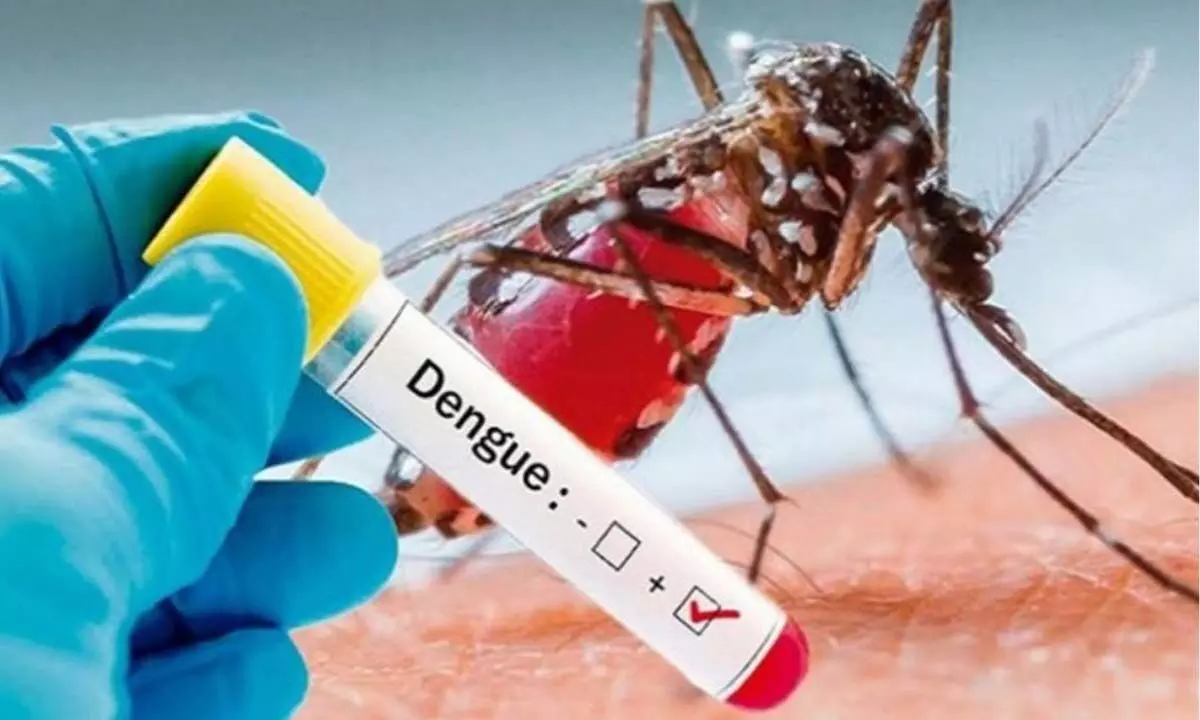Dengue Fever: Symptoms, Treatment and More

Dengue is a mosquito-borne illness that is caused by the dengue virus. It is a major public health problem in tropical and subtropical regions worldwide.
Dengue is a mosquito-borne illness that is caused by the dengue virus. It is a major public health problem in tropical and subtropical regions worldwide. The symptoms of dengue can range from mild to severe, and they can appear 3-14 days after being bitten by an infected mosquito. We spoke to Dr J Anish Anand, Consultant Internal Medicine, Apollo Hospitals, and he talked about dengue's symptoms and precautions.
The most common symptoms of dengue are:
• Fever sometimes high, lasting 2 to 7 days
• Severe headache, especially around the eyes and forehead
• Pain behind the eyes
• Joint and Muscle Pain: Severe joint and muscle pain, often giving it the name "breakbone fever
• Skin rash appearing 2 to 5 days after fever
• Diarrhea
• Fatigue, general weakness, and tiredness
In some cases, dengue can lead to more serious complications, such as dengue hemorrhagic fever (DHF) and dengue shock syndrome (DSS). DHF is a life-threatening condition when the body's immune system overreacts to the dengue virus. DSS is a severe form of DHF that can lead to shock and death.
There is no specific treatment for dengue, but there are ways to manage the symptoms. Treatment for dengue typically includes:
• Rest
• Fluid intake
• Pain relievers, such as ibuprofen or acetaminophen
• Over-the-counter medications to treat nausea and vomiting
In more severe cases, hospitalisation may be necessary.
There are a number of things you can do to protect yourself from dengue, including:
• Avoid mosquito bites. This means using insect repellent, wearing long sleeves and pants, and staying indoors during peak mosquito hours (dusk and dawn).
• Mosquito control measures Reduce mosquito breeding sites by getting rid of standing water in and around house, such as flower pots, old tyres and buckets
• Wear protective clothing wear long sleeves, socks, long pants and shoes to prevent mosquito bites
• Use mosquito repellents on exposed skin and clothing
• Avoid peak mosquito activity Dengue-carrying mosquitoes are active during early morning and late afternoon. Try to stay indoors during this time or use extra precautions
• Support vector control measures. Local authorities should conduct vector control measures like flogging and spraying areas with reported dengue cases
• Window and door screens mosquito mesh around windows and doors will help fresh air come in but not mosquitos
If you may have dengue, it is important to see a doctor immediately. Early diagnosis and treatment can help to prevent serious complications.









